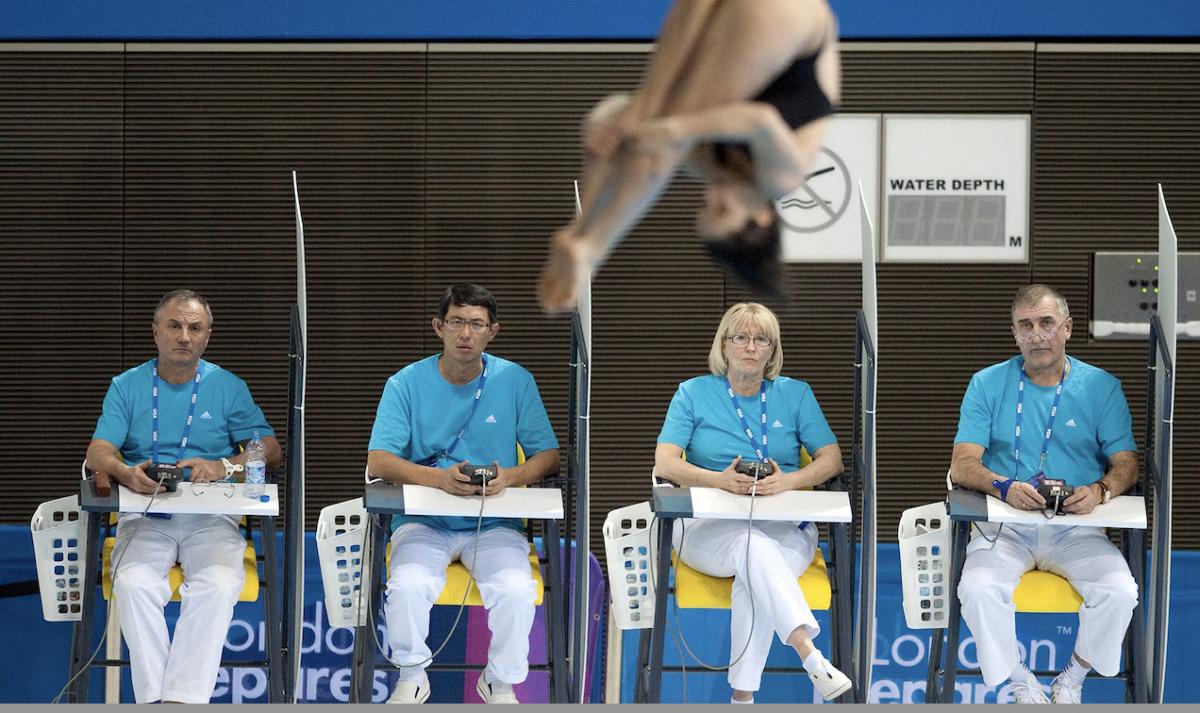As I watched the Olympics over the past few weeks, and read comments from fellow observers, I have been contemplating the tough road of being an expert at something given the public’s expectations in today’s world.
Disparaging comments about athletes who have had disappointing results in this year’s winter Olympics have been relentless. Mikaela Shiffrin, a previous Olympic gold-medal winner who had several unsuccessful ski runs this year, was inundated with cruel messages on social media. People called her a dumb blonde, a disappointment to her country, a choker, and some asked her to retire. And let’s not even begin to unpack the performance of 15-year-old Kamila Valieva who was accused of having illegal drugs in her system, had a disappointing four-minute skating program with several mistakes and a fall, and was harshly criticized by her coach “for not even trying” while millions around the world watched.
And it’s not just the Olympics. Dr. Anthony Fauci who has devoted his life to public service has been called an idiot because he could not predict the next variant of Covid that would come down the pike. Even the best concert pianists are criticized for interpreting music incorrectly. Chefs, actors, writers, artists, and poets are summarily rounded at the slightest provocation. We cannot seem to stop criticizing.
Ironically, many people doing the criticism are sitting at home on their sofas drinking Miller Lites while watching TV as they blast their fellow man.
I keep thinking about the discipline these Olympic athletes exhibit day after day, year after year. Countless hours of practice, endless drug testing, often experiencing assaults on their bodies followed by intense rehabilitation.
We have become a nation of critics that loves a winner and reviles a loser. I find it cruel and unconscionable. The damage it can do to these athletes—especially the ultra-young ones—is off the charts.
I have played the piano for several years. I can play a particular piece repeatedly, and still find it difficult to get through the whole piece without making a mistake. It is frustrating and at times embarrassing. When I go to a concert, I am amazed that a pianist can play a sonata from beginning to end without music and without errors. How is that possible? I realize that I am not a professional musician but even so, it is extremely impressive that someone can play for 35 minutes without error or music. I know how hard that is. And I can begin to understand the time and effort these musicians put into their craft.
Listening to commentators at the Olympics who give detailed descriptions of every point and every expectation of each of countless moves overwhelms me. I watch incredible feats of skiing, jumping, skating, snowboarding, etc., and hear tiny nuances that can make or break a contender. The curve of a skate. The hold on a snowboard. The angle of a ski. The technicalities are daunting. The pressure is relentless. And the complexity of these maneuvers is mind boggling.
Then, I think about how difficult it is to be a medical professional, or an athlete, or a musician, or a writer. It takes discipline, forbearance, grit, guts, tenacity, and more. They try their best and constantly seek to improve. They talk to other experts, practice more, gather different points of view and eventually decide upon a direction that they hope will give them a winning result.
Others seldom try hard at anything. They are content to perform their jobs at mediocre levels and are fine with not learning all there is to know about their occupations. And yet it seems to me that those are the very people who unceasingly criticize others and send off these heartlessly cruel attacks on their fellow man.
In those rare instances where perfection happens, it is truly a beautiful thing. Think Beethoven’s 9th, the Mona Lisa, Don Quixote, the Taj Mahal, a bottle of Chateau Latour. It stirs our soul. We catch our breath as we embrace the potential and genius of humankind.
But striving for perfection is a difficult road. It happens. But rarely. And let us face facts. People make mistakes. It’s only human. The best quarterbacks throw interceptions (Brady threw 203 in his career; Favre 286). The best actors sometimes forget their lines (Marlon Brando and John Barrymore). The best pianists can miss a note (Arthur Rubinstein). And the Greatest of all Time (GOAT) gymnast Simone Biles can fall off a balance beam.
As Alexander Pope said, “To err is human, to forgive, divine.” My suggestion: Let us remove the vitriol from our cocktails and add a spoonful of forgiveness with a dash of empathy.
Maria Grant was principal-in-charge of a Federal human capital consulting practice of an international consulting firm. While on the Eastern Shore, she focuses on writing, reading, piano, gardening, and nature.



D Masinick says
Bravo. Before anyone is able to utter criticism, they first should ask themselves if they can do better.
Again you have written eloquently on a very real subject that became more pronounced with world competition. Thank you.